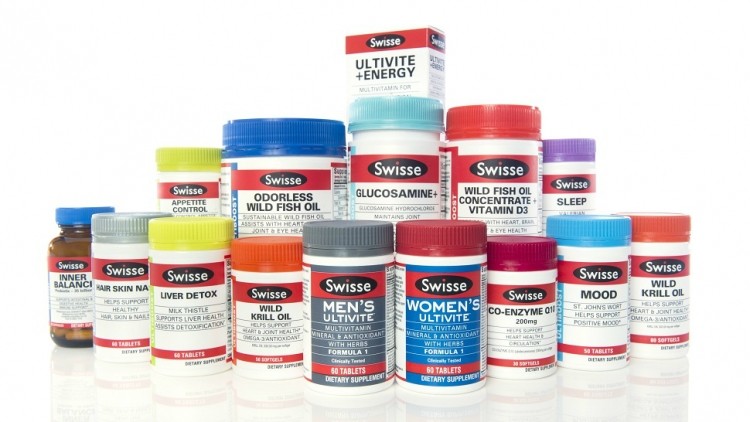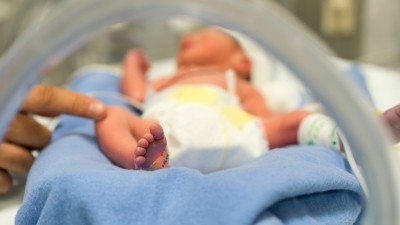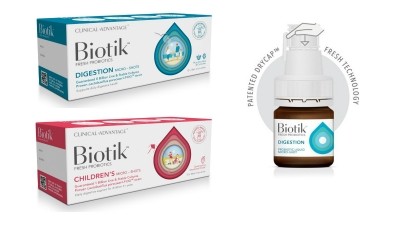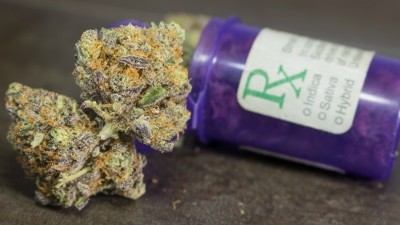Brand New: Swisse, Usana and a2 feature in our big-name brand round-up

Strong Australia and China sales propel Q3 revenue growth for Swisse
Swisse has announced a 41% rise in revenues for the three months ended September 30, due largely to its performance in the Australian market.
The company's market share in vitamins and mineral supplements increased from 16% to 18.9% within the past year, driven by growing sales of new product ranges, and extra promotions, in local supermarket giants Coles and Woolworths.
Between January and September this year, the firm saw a revenue increase of 29.3%, thanks to rapid growth in China, where revenues in the adult nutrition and care products division rose 40.8%, from US$128.3m to US$180.63m.
Luo Fei, chairman of Swisse's owner, the Hong Kong-listed Health & Happiness (H&H) Group, said Swisse's China business "continued to demonstrate vigorous growth through new product launches and the leverage of comprehensive branding and marketing campaigns and collaborations with new celebrities and key opinion leaders".
Don't blame daigou, blame brands? Formula firms urged to explore new retail channels in Australia amid shortage complaints
Brands must share the responsibility for shortages of infant formula in some Australian stores, instead of heaping the blame on daigou shoppers, says Australia-China Daigou Association (ACDA) president Dr Mathew McDougall.
Daigou shoppers in Australia are once again in the spotlight, thanks to an open letter addressed to supermarket chain Woolworths from a father in Sydney.
The supermarket's decision to raise the per-customer infant formula limit from two to eight tins was criticised, and in response, it justified this with "improving supply in the market", adding that it would continue to "carefully monitor" stock availability and readjust the limit if necessary.
Innovation not to be sneezed at: Mandarin yogurt ice pop 'relieves' hay fever symptoms
Japanese ice cream manufacturer Meisui Ice has teamed up with researchers from Ehime University to produce a yoghurt ice pop that relieves hay fever symptoms.
Made from mandarin orange and cow's milk, the yoghurt ice pop contains nobiletin and β-LG (β-lactoglobulin) — the ingredients responsible for reducing allergic symptoms.
Nobiletin is a major component of citrus fruits. It produces anti-inflammatory, anti-tumorogenic, and anti-diabetic effects. On the other hand, β-LG is a globular protein made up of 162 amino acid residues. It is absent in human milk but abundant in bovine milk.
The yoghurt ice pop, branded as W Double Mican Yogurt Ice, went on sale in September. A box of five pieces costs ¥600, while a box of 30 pieces costs ¥3,900. Each ice bar contains 0.5mg of nobiletin and 150mg of β-LG, Takuya Sugahara, professor at the Graduate School of Agriculture at Ehime University said in response to queries from NutraIngredients-Asia.
WATCH: "Now is the right time to expand even further" — Japanese probiotics supplement manufacturer Morishita Jintan
The time is ripe to expand the APAC probiotics business, according to Morishita Jintan, a Japanese probiotics supplement manufacturer.
Higher income, demand for better lifestyles, and longevity were factors fuelling the demand for supplements, said Yuji Sakuta, manager of the firm's international business group (healthcare business division).
"We see that the probiotics trend is growing in Asia. We have been expanding this business opportunity since 20 years ago, and I would say that now is the right timing to expand even further into other Asian countries.”
"China is now growing very rapidly in probiotics, and it is very attractive for Japanese companies to get in, especially for Chinese people, (because) when they come to Japan, they like to buy local products."
Soaring sales in Asia help Usana deal with the 'Amazonification' of the US market
Dietary supplement direct sales company Usana reported a 13.4% rise in sales in its most recent quarter. The increase was driven almost entirely by soaring sales in its Asia-Pacific region.
Usana, which is based in Salt Lake City, UT, markets dietary supplements and personal care products globally via a multi-level marketing paradigm. The company has for many years shown greater growth outside the US than it has domestically.
The most recent earnings release for the company's third quarter of 2018 presents the trend in vivid relief. The company recorded $296.8 million in revenue in the quarter, compared with $261.8 million in the prior-year period.












